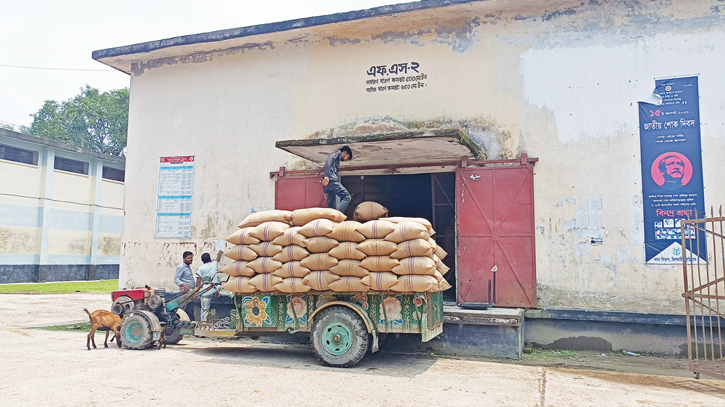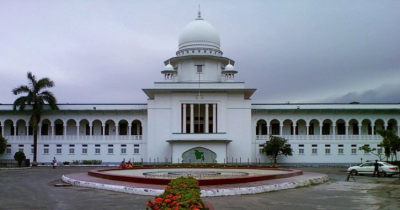
The digitalization of the rice procurement system was intended to ensure transparency, yet local farmers have voiced their worries about how fake names managed to penetrate the official list. Photo: Messenger
In Kurigram's Chilmar upazila, a concerning situation has emerged with the procurement of rice at the government food warehouse, where a syndicate is allegedly using fake farmer lists to conduct transactions.
Despite the lists being published through a lottery system, there have been significant discrepancies, with many phone numbers not matching the names of the supposed farmers. In a surprising revelation, a call placed to one such listed farmer ended up connecting to a police officer from the Chilmar Model Police Station, raising eyebrows about the integrity of the process.
The digitalization of the rice procurement system was intended to streamline operations and ensure transparency, yet local farmers have voiced their worries about how fake names managed to infiltrate the official list. Officials are reportedly attempting to deflect responsibility for the oversight.
This season, the government aims to procure 688 metric tons of rice from 229 farmers across six unions in the upazila at a rate of Tk 45 per kg. Additionally, 1,096 metric tons of rice from 40 millers and 90 metric tons of wheat at Tk 34 per kg will be purchased.
As of now, 20 farmers have supplied 60 metric tons of rice to the Chilmar LSD building. However, Maizul Islam, an employee on duty, declined to show the list of these farmers without proper certification from the district food controller, further complicating the situation and highlighting the need for stricter oversight and accountability in the procurement process.
On-site observations revealed rice-laden trolleys waiting at the upazila food warehouse, with rice traders present but no farmers.
Investigations uncovered that a syndicate is manipulating the process by presenting fake farmer lists. Calls to listed farmers revealed they were not residents of Chilmar. For example, a farmer listed from Thanahat union turned out to be a police officer, while another from Astamir Char union claimed it was a wrong number.
Local farmers, like Aminul Islam from Thanahat union, expressed frustration over the recurring issue of fake farmer listings during government rice purchases. They questioned how fake names got included despite the digital application process.
Upazila Agriculture Officer Kumar Pronoy Bishan Das stated that applications were submitted through an app and provided to the UNO, who conducted the lottery. He denied any further knowledge of the matter.
Chilmar Upazila Food Officer Alauddin Bosunia confirmed the collection of 60 metric tons of rice, claiming proper verification of farmer IDs and agriculture cards. Upazila Executive Officer Minhajul Islam assured that necessary actions would be taken after discussions with the food warehouse officer.
Attempts to contact Hemanta Kumar Barman, the acting Upazila Food Controller, were unsuccessful.
District Food Controller Saiful Kabir Khan mentioned that rice purchases are based on lists prepared by agricultural block supervisors, denying any involvement in the discrepancy.
This situation has highlighted the critical need for tighter controls and transparency in the rice procurement process. The misuse of digital lists not only undermines the credibility of the procurement system but also impacts the livelihoods of genuine farmers.
As government officials and local authorities continue their investigations, there is a growing demand for stringent measures to prevent such discrepancies and ensure that the benefits of government procurement reach the rightful recipients. The issue calls for a comprehensive review of the existing procedures and a concerted effort to root out corruption within the system.
Messenger/Fameema








